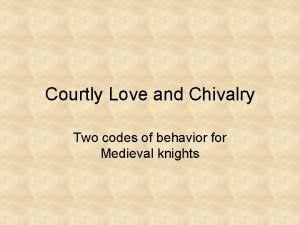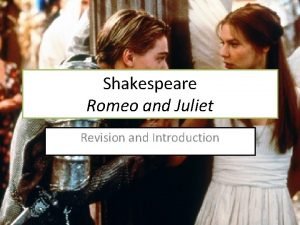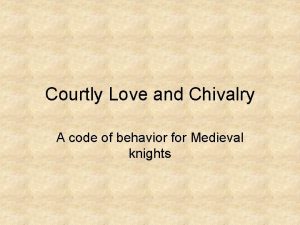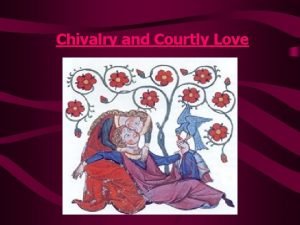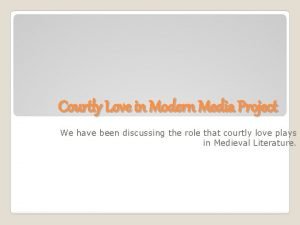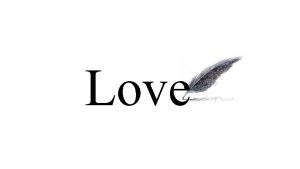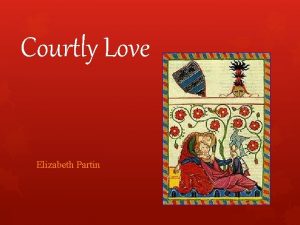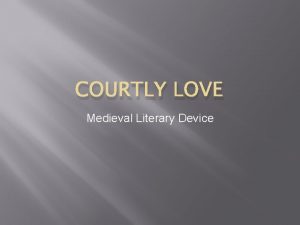Crusades and Courtly Love Questions on Speech of





- Slides: 5

Crusades and Courtly Love

Questions on Speech of Urban II at the Council of Clermont : Two accounts 1. Does Urban's speech provide any evidence of the influence of the Gregorian Reform? What roles does he assume for the clergy as a whole? For lay people? For the papacy? 2. Does Urban's speech provide evidence for a belief in Christendom as a unified entity? How does Urban define his society? How does he define the enemy? 3. Does the speech provide evidence of the power of the clergy and papacy? Does it suggest limits to that power? To whom does Urban turn for support? What rewards and punishments do he and the clergy have at their disposal?

Questions on Urban’s speech 1. How peaceful a society does the West seem to have been in the eleventh century, to judge from these sources? 2. What seems to have been the motives for the Crusades? 3. Compare and contrast these two accounts. Do you think either is reliable? Why or why not?

Questions on Two Letters from Crusaders 1. How do these men regard the enemy? Their own side? Is there evidence in these sources for a belief in Christendom as a whole? 2. Judging from these letters, why did people go on the Crusade? 3. Was the Islamic world united in defense of the Holy Land? 4. Is there any evidence here that illuminates the role of noblewomen in marriage?

Questions on Marie de France 1. 2. 3. Eliduc To judge from this source, what were the expectations for married men? Married women? What constraints existed on married people in the High Middle Ages, and what was the source for such constraints? Was divorce possible? What expectations affected the relationship between lords and their men in the twelfth century, according to this source? What might be the strengths and weaknesses of literary sources for historians, based on your reading of Eliduc?

